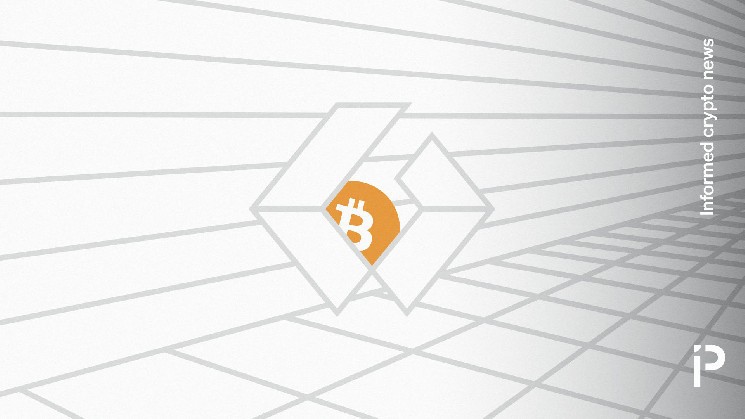Grayscale Bitcoin Trust and its ties to crypto meltdowns

The Grayscale Bitcoin Trust (GBTC) is an over-the-counter (OTC) traded fund meant to track the price of bitcoin. Grayscale Investments is owned by Barry Silbert’s crypto mammoth Digital Currency Group (DCG), which also owns beleaguered crypto trading and lending firm Genesis.
Here’s how it works: When Grayscale chooses to open its private placements, accredited investors are able to deposit bitcoin to receive shares of the trust (or deposit cash and have Grayscale help facilitate the purchase of bitcoin).
Purchasers in the private placement are unable to sell their shares for six months, due to the specific regulations governing GBTC. After that, they’re able to sell the shares to other people.
Once those shares are available for sale, people are able to purchase them from their broker, and thus gain indirect exposure to bitcoin.
Grayscale charges 2% of assets under management (AUM) as fees for GBTC.
How is GBTC different from an ETF?
An exchange traded fund (ETF) is able to issue and redeem shares for the underlying index. So an investor who approaches a spot bitcoin ETF with bitcoin can convert their bitcoin into shares of the ETF, and investors with shares of the ETF can convert them into bitcoin. Exchange traded funds are also traded on national securities exchanges, whereas GBTC is traded OTC.
This redeem-ability would help eliminate the tendency of GBTC to trade at either a premium or a discount to net asset value (NAV).
Grayscale is famously in the midst of suing the Securities and Exchange Commission (SEC) for denying its request to convert the trust into an ETF.
GBTC has not offered redemptions since 2014. It settled with the SEC (along with sister company SecondMarket) in 2016, for alleged violations of Rules 101 and 102 of Regulation M. Since then, Grayscale has not offered redemptions.
Regulation M prevents Grayscale from offering redemptions within the six month restricted period after an issuance. However, Regulation M does seem to permit Grayscale to offer redemptions outside of that restricted period. In this instance, it can only redeem and not issue simultaneously.
David Hennes, partner at law firm Ropes and Gray, explained in his public comment to the SEC that “Regulation M, however, does not prohibit GBTC from redeeming shares as long as GBTC is not concurrently distributing shares.”
Since 2014, investors have been able to contribute to the fund, helping it grow — but no one has been able to redeem. If Grayscale were to open redemptions, that would be reversed: shareholders would be able to redeem but no new investors would be able to issue shares.
Opening redemptions would reduce the amount that Grayscale would earn in fees by reducing the total AUM.
How did it help destroy Three Arrows Capital?
For a long time, GBTC traded at a significant premium to its NAV, with shares trading for as much as double the value of the corresponding bitcoin. While this premium persisted, institutional investors were incentivized to lock up bitcoins and receive GBTC shares, which they hoped to sell once the six month period elapsed.
However, this trade become popular among a variety of firms, including BlockFi and Three Arrows Capital (3AC). As shares began to unlock, GBTC eventually started trading at a discount to NAV. This became particularly challenging for BlockFi, which had lent 3AC money against GBTC collateral.
Eventually, 3AC was liquidated by BlockFi, which meant increased selling of GBTC into the market, further raising the discount. Currently, GBTC trades at around a 45% discount to NAV.
Where are the bitcoins?
Coinbase Custody. The custodian agreement written into the prospectus for GBTC prevents Coinbase Custody from disclosing those addresses, even to Grayscale, or DCG.
“Under the Custodian Agreement, the Custodian must use its best efforts to keep private and public keys secure, and may not disclose such keys to the Sponsor, Trust or any other individual or entity,” it reads.
There’s no way to verify the ownership of bitcoin by GBTC on-chain.
Will Genesis affect it?
DCG, the parent company for both beleaguered Genesis Trading and Grayscale, is reportedly fundraising to help shore up the books of Genesis.
If Grayscale Investments withdraws as sponsor for GBTC, then the remaining shareholders have 90 days to find a new sponsor or the trust will terminate. If the trust is forced to liquidate, the bitcoin will be sold “as promptly as possible while obtaining the best fair value possible.” Cash proceeds will be distributed pro-rata to shareholders.
GBTC currently has 644,000 bitcoin. Those who purchased at a significant discount could potentially make money, but that depends on how this sale of bitcoins would affect the market price for bitcoin.
Grayscale is one of the most profitable parts of the DCG empire, and it likely would try to avoid liquidation, as it generates approximately $200 million in fees. The shares do also allow for distribution of the bitcoins to shareholders, instead of cash proceeds. However, that seems to require a voluntary termination and 75% of shareholders voting in favor.
If Grayscale decides to open redemptions, DCG would be able to redeem the hundreds of millions of dollars worth of GBTC it purchased at a discount.






 Bitcoin
Bitcoin  Ethereum
Ethereum  Tether
Tether  USDC
USDC  TRON
TRON  Dogecoin
Dogecoin  Cardano
Cardano  Bitcoin Cash
Bitcoin Cash  Chainlink
Chainlink  LEO Token
LEO Token  Monero
Monero  Zcash
Zcash  Stellar
Stellar  Litecoin
Litecoin  Hedera
Hedera  Dai
Dai  Cronos
Cronos  OKB
OKB  Tether Gold
Tether Gold  Ethereum Classic
Ethereum Classic  KuCoin
KuCoin  Algorand
Algorand  Gate
Gate  Cosmos Hub
Cosmos Hub  VeChain
VeChain  Stacks
Stacks  Tezos
Tezos  Dash
Dash  TrueUSD
TrueUSD  IOTA
IOTA  Basic Attention
Basic Attention  Theta Network
Theta Network  Decred
Decred  NEO
NEO  Synthetix
Synthetix  Qtum
Qtum  0x Protocol
0x Protocol  Ravencoin
Ravencoin  DigiByte
DigiByte  Zilliqa
Zilliqa  Holo
Holo  Nano
Nano  Siacoin
Siacoin  Numeraire
Numeraire  Waves
Waves  Status
Status  Enjin Coin
Enjin Coin  Ontology
Ontology  Hive
Hive  BUSD
BUSD  Lisk
Lisk  Pax Dollar
Pax Dollar  Steem
Steem  Huobi
Huobi  NEM
NEM  OMG Network
OMG Network  Bitcoin Gold
Bitcoin Gold  Augur
Augur